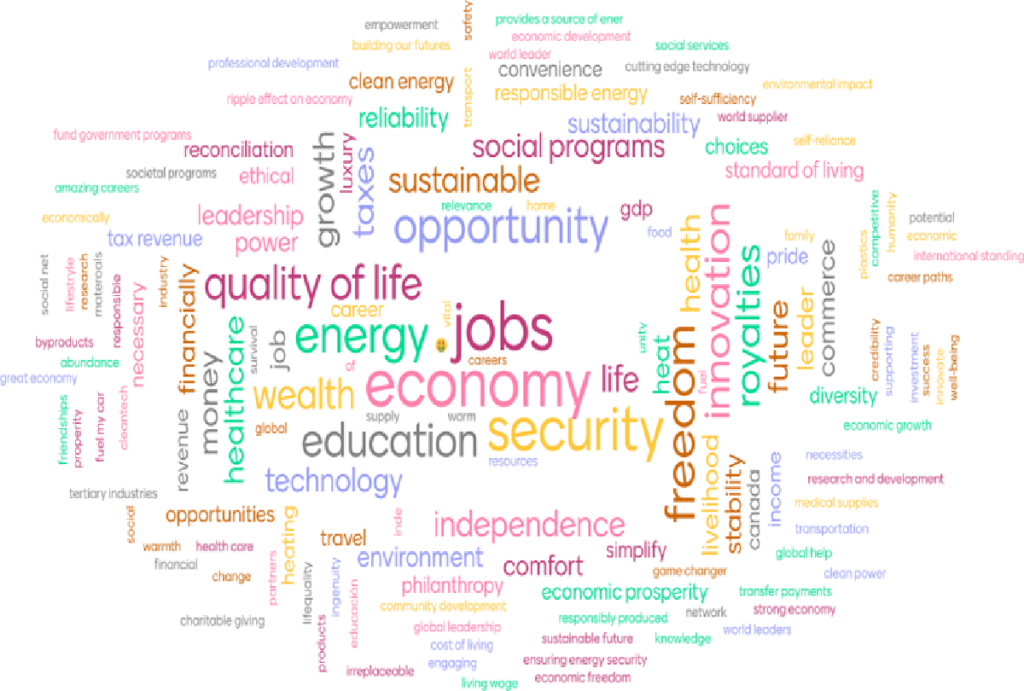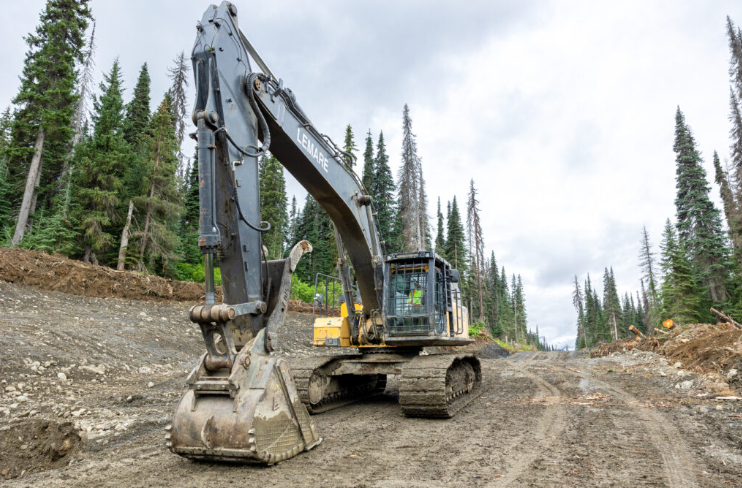
Canada Powered by Women survey question: In your opinion, how do Canadians benefit from our oil & gas industry?
by Deidra Garyk
Energy transforms our lives. It allows us to power machinery like automobiles, washing machines, and dishwashers, that do the heavy lifting to free up our time. It transforms dreams of visiting far away exotic lands into real adventures in foreign countries. Energy allows us the freedom to make our own decisions and control our own destinies.
Energy transforms our lives.
It gives a girl in a developing nation the freedom to go to school and learn. It transforms an impoverished mother’s life from one of back-breaking domestic labour to one where she can leave the house to earn a living to feed her family. Energy transforms women’s lives.
Too often, though, women do not think about this important product. Energy, hydrocarbons in particular, are often associated with masculinity and men. The sector’s workforce is indisputably dominated by men – many great, hard-working men – with only twenty two percent of the global workforce made up of women. The Canadian oil and gas industry’s numbers are slightly better, at thirty one percent.
While there is nothing wrong with these statistics, per se, they indicate that women are often self-selecting out of the sector. That means their views on energy are not always front and centre at decision-making tables, including the corporate boardroom table and the public policy table.
Women must be part of the conversation as people around the world need more energy, especially those who do not even have basic access to electricity.
However, women underestimate how knowledgeable and informed they really are. Without anonymity, women are reluctant to engage in conversations about oil and gas, or any other subjects that may be polarizing.
Let us encourage and support women to share their opinions. Working together, the possibilities to create a thriving society are endless.
A group of women leaders in energy decided they could be part of creating a positive change. They formed Canada Powered by Women in advance of the 2019 Canadian federal election to bring awareness to energy issues and to get women comfortable talking about them.
It is a conversation that is happening more and more as the realities of energy security become something we can longer take for granted. Women across Canada are talking, and they are united in their views – energy matters!
Energy policy is social policy.
Energy, the environment, and the economy are intertwined, and each must be protected as sacred.
Affordable, reliable, secure, available energy benefits everyone: rich or poor, privileged or not. Advancement opportunities come from gaining access to this necessity. One of the greatest sources in use, hydrocarbons, impact everything in our day and make our modern lives possible.
Women care about facts, so let us talk some energy facts!
- Canada is the fourth largest producer of both natural gas and oil in the world.
- Oil and gas operations contributed $22.6 billion in tax revenue between 2020-2025. Canada’s resource wealth helps pay for social programs and services, like healthcare.
- Reliable energy keeps important infrastructure, like hospitals and medical clinics, open and operating. It cannot be intermittent. It must be available whenever it is needed, not when it is convenient.
- Global oil demand has not already peaked. Demand is expected to remain strong into late 2030 or early 2040. Even then, demand will not plummet to zero overnight.
- Not all First Nations oppose oil and gas development. Many Indigenous Canadians support resource development, including the 34 First Nations that produce natural gas on reserve.
- Canada gets about 82 percent of its electricity from non-emitting sources, such as hydro.
- In ESG rankings of oil exporting nations, Canada takes the top spot.
- The Canadian oil and gas industry is using its technological know-how to evaluate real solutions that reduce emissions. A great example is in the oil sands, where emissions intensity decreased by twenty percent between 2009 and 2020. The six largest oil sands companies have made emissions reduction commitments and are spending billions on carbon capture projects because they have not stopped trying to reduce their environmental impacts.
- Energy-related taxes, like the carbon tax, impact the cost of goods, such as food. By making the cost of hydrocarbon-based energy more expensive so that people theoretically consume less, all our goods are made more expensive.
Canada’s abundance of natural resources creates a moral responsibility. We must share with those who do not have, either due to their geographic location or due to political challenges. Canada needs to continue developing resources and building infrastructure. We have a responsibility to supply energy to the world.
About Deidra Garyk
Deidra Garyk has been working in the Canadian energy industry for almost 20 years. She is currently the Manager, ESG & Sustainability at an oilfield service company. Prior to that, she worked in roles of varying seniority at exploration and production companies in joint venture contracts where she was responsible for working collaboratively with stakeholders to negotiate access to pipelines, compressors, plants, and batteries.
Outside of her professional commitments, Deidra is an energy advocate and thought leader who researches, writes, and speaks about energy policy and advocacy to promote balanced, honest, fact-based conversations.
Share This:






